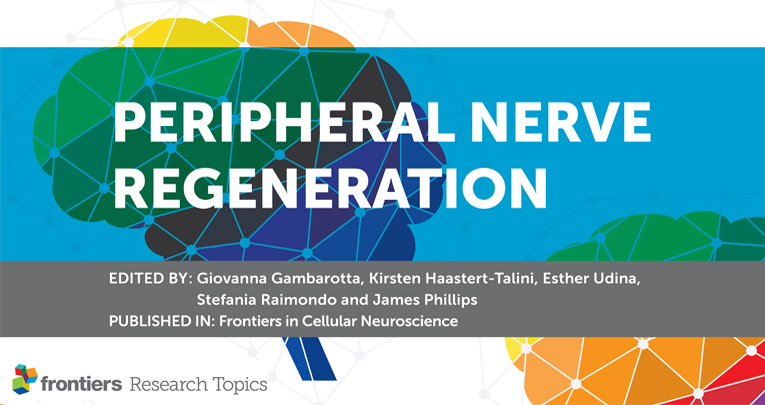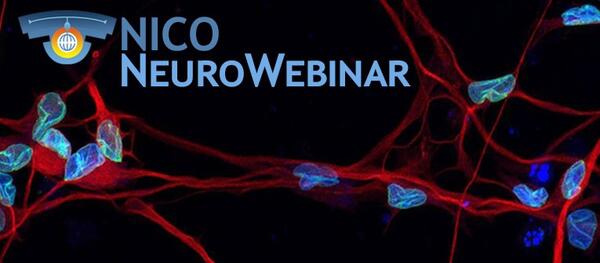
Frontiers in Cellular Neuroscience, October 2019
Editorial: Peripheral Nerve Regeneration
Giovanna Gambarotta 1 , Stefania Raimondo 1,2 , Esther Udina 3 , James B. Phillips 4,5 and Kirsten Haastert-Talini 6,7*
The Research Topic entitled “Peripheral Nerve Regeneration” is focused on strategies to promote and improve the same. Injuries to peripheral nerves have variable causation such as metabolic or hereditary poly-neuropathies, nerve sheath tumors, or nerve trauma resulting from occupational or car accidents or combat activities. Although knowledge on the processes allowing peripheral nerve regeneration after degeneration or injury has been significantly increased over the last decades, and although (micro-)surgical methods have been refined considerably, more research is still needed to minimize consequences for patients and society. Treatment of acutely or chronically injured peripheral nerves is far from being optimal. Patients suffer from severe impairment of their quality of life due to continuous disabilities and their treatment is still affiliated with high socio-economic costs.
123 authors from 14 different countries and five continents contributed to the current Research Topic with seven review articles and 12 original research articles. These publications look from different angles into the current challenges for the field. For more than 100 years investigative surgeons and basic researchers have revealed solid knowledge on (1) key events orchestrating the process of peripheral nerve regeneration, and (2) basic mechanisms and pathways that need to be activated or blocked for axonal regeneration and correct reinnervation of peripheral target tissue. They have also discovered (3) cellular key players and how lineage reprogramming is generating them, and, not to forget, (4) surgical approaches and biomaterials supporting successful recovery.
This collection of articles provides technical information worth considering in future research.
read more







